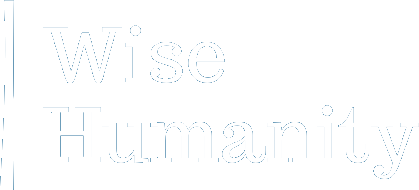Where Does Courage Come From?
Two weeks ago, many of us thought that Ukraine would surrender rather than sacrifice lives in an unwinnable war. But while the older democracies have been losing faith in themselves, Volodymyr Zelensky flipped a switch from hopelessness to courage. When he was offered an airlift to safety, he replied, “I don’t need a ride, I need ammunition.”
Where did his astonishing fortitude, and the heroism of the Ukrainian people, come from? And why has it electrified the world into coming to Ukraine’s aid?
This is not jingoistic nationalism or messianic fervor. There’s no swagger. Nor is it mere duty.
Instead, we see people with a firm conviction that they are part of something greater than themselves. Something with a long past and a future. They are humble. They are confident in their choice to stand and fight. And it’s awe-inspiring to see.
Their sense of purpose reminds me of the story about the stone mason building a cathedral. Though he may never see the finished work, he feels honored to collaborate with past generations and knows his work will uplift and inspire generations in the future.
The cathedral under construction here is Ukrainian independence, and also the global edifice of democracy, human rights and human dignity. We all have our hearts in this project. The Ukrainians are fighting for our values, reminding us what we stand for, and calling on us to stand for it again.
I think this identification with global, universal values is the root source of Zelensky’s courage.
This week, I hunted around the internet looking for clues to how he developed his courage, and I ended up watching his comedy from a few years ago, Servant of the People. If you haven’t seen it, I recommend you have a look—it’s here on YouTube and here on Netflix.
I guess by now, everyone knows the amusing story that he went from playing the president on television to being the president in real life. And that almost seems like a joke in itself. But I think it’s more than a joke.
In the show, Zelensky stars as a loveable everyman, a history teacher who cares passionately about social justice. One day, a student secretly records this teacher erupting in an expletive-laden rant against the government:
“Do you know why we have a dog’s life?” Zelensky’s character yells at his colleague. “In our elections, there’s no one to elect. We’re choosing between two bastards. And it has been like this for 25 years… Then these bastards come to power and steal and steal and steal…. If I could get there for just one week, I’d show them! I’d do away with their corteges, the bonuses, the summer cottages, all of it! I wish every common teacher lived like a president, and I wish every president lived like a teacher, damn it!”
This cri de coeur goes viral on social media, prompting citizens across Ukraine to write in this teacher’s name on the presidential ballot, so he accidentally finds himself elected—all in the first episode. Subsequent episodes depict his long struggle against kleptocracy — a David fighting Goliath, or perhaps Paddington Bear fighting Voldemort, the mismatch underscored by Zelensky’s diminutive physical stature and effusive energy.
The show is lightly slapstick and not a likely qualifier for high political office, but in it, we can see how the Ukrainian public came to love this sincere, humble, fiery character, and I think they were correct to see that the character in the show said a lot about Zelensky’s real character.
In the show, the president navigates tricky situations with help from his advisors, who happen to be Plutarch, Socrates, Jesus and Lincoln—figures prominent in his psyche from his days as a history teacher, now visiting him in dreams. Ancient Chinese, Persian and Mayan sages are also invoked. The television character sees himself in conversation with global history.
At a recent press conference, the real-life president was also in conversation with history: “I don’t want Ukraine’s history to be a legend about three hundred Spartans. I want peace… We are on our land. We are ready for anything.”
He sees himself and his country as the inheritors and the compatriots of everyone, everywhere who has fought for freedom, truth and human dignity.
And that’s what makes his courage so inspiring: though there’s plenty of anger in it, it’s fueled by profound humaneness. You could even call it love.
This universal theme is echoed by others stepping up to fight. A Russian woman protesting the war told an NPR reporter, “When I go and protest, it's not because I think Putin will look down at me and say, ‘Oh, there are too many people, I'll stop.’ Well, that's nonsense...It's more for the future generations like, ‘You see? I was out there. I was protesting. I was against this.’”
Veterans from around the world are boarding planes to volunteer in Ukraine. As I witness their heroism, I feel sorrow, admiration, and also a longing to dedicate myself as fully to my ideals.
It’s easy for those of us staying home to feel helpless. Perhaps we can find instruction in Zelensky’s example.
Let’s remember that we all play a role in building freedom, peace, and humaneness. Let’s study wisdom and practice courage.
Let’s redouble our efforts in every sphere available to us. Are we raising a child to be brave and kind? Do we speak up when we see a moral wrong? Do we participate in government, or serve in our community? Can we welcome a refugee? Or just offer a friendly smile to a stranger? Each brick we add to the cathedral of our common humanity counts.
Let’s think of our actions in the largest scope of past and future, drawing courage from our deepest and broadest connection to humanity. We can be ready for anything.
Subscribe to our newsletter and blog here.


